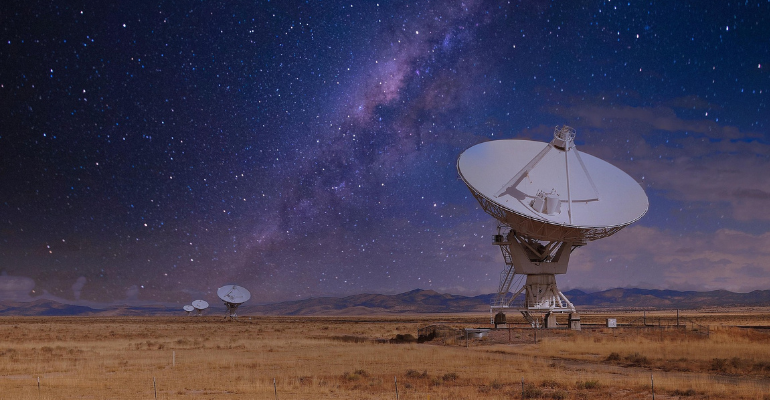Reference: Fatāwa Ramadān fīs-Siyām wal Qiyām wal-i’tikāf wa zakāt al-fitr p62
Question: What is the Islamic way of determining the beginning of the month? Is it permitted to rely upon observatories to calculate the beginning of the month and its ending? Is it permitted for a Muslim to use telescopes to sight the moon?
Response: The Islamic way of knowing when the month has entered is by people sighting the new moon. It should be done by people who are trusted in their religion and their physical ability to sight.
If they see the new moon, the people must act upon the sighting by fasting if it was the new moon of Ramadān, or ending the fast [of Ramadān] if it was the new month of Shawwāl.
It is not permitted for a person to rely on the calculations of astronomical observatories in the absence of the sighting. However, if the sighting is confirmed through the observatories, then it is valid, due to the generality of the statement of the Prophet ﷺ:
If you see it [the new moon], then begin your fasting, and if you see it, then end your fasting. [2]
As for mere calculations, it is not permitted to rely or act upon them.
With regards to using telescopes – which are lenses which magnify the new moon – there is nothing wrong with it; however, it is not an obligation. This is because what is apparent from the sunnah is that a person should rely on a normal sighting and nothing else. However, if a person used a telescope- to confirm his sighting – then this sighting is implemented.
In the olden days, people would use something similar, by climbing beacons [1] on the 30th night of Sha’bān or the 30th night of Ramadān; they would use this position to sight the new moon.
The point is that as long as the moon is sighted – using any medium – it is obligatory to act upon such a sighting, due to the generality of the statement of the Prophet ﷺ:
If you see it (the new moon), begin your fasting; if you see it, end your fasting. [3]
Footnotes
[1] Beacon: A tower, hill or an elevated place used for sighting; it is also used to describe lighthouses.
[2] Narrated by Abu Hurayrah; Collected by Al-Bukhārī & Muslim.
[3] Ibid.
وهل يجوز اعتماد حساب المراصد الفلكية في ثبوت الشهر وخروجه؟
المرجع: فتاوى رمضان في الصيام والقيام والإعتكاف وزكاة الفطر
س: ما هي الطريقة الشرعية التي يثبت بها دخول الشهر؟ وهل يجوز اعتماد حساب المراصد الفلكية في ثبوت الشهر وخروجه؟ وهل يجوز للمسلم أن يستعمل ما يسمى بـ(الدربيل) في رؤية الهلال؟
ج:الطريقة الشرعية لثبوت دخول الشهر أن يتراءى الناس الهلال، وينبغي أن يكون ذلك ممن يوثق به في دينه وفي قوة نظره.
فإذا رأوه وجب العمل بمقتضى هذه الرؤية صوماً إن كان الهلال هلال رمضان، وإفطاراً إن كان الهلال هلال شوال، ولا يجوز اعتماد حساب المراصد الفلكية إذا لم يكن رؤية. فإن كان هناك رؤية ولو عن طريق المراصد الفلكية فإنها معتبرة لعموم قول النبي صلى الله عليه وسلّم: «إذا رأيتموه فصوموا، وإذا رأيتموه فأفطروا» (1).
أما مجرد الحساب فإنه لا يجوز العمل به ولا الاعتماد عليه.
وأما استعمال ما يسمى بـ(الدربيل) وهو المنظار المقرِّب في رؤية الهلال فلا بأس به، ولكن ليس بواجب؛ لأن الظاهر من السنة أن الاعتماد على الرؤية المعتادة لا على غيرها، ولكن لو استعمل فرآه من يوثق به فإنه يعمل بهذه الرؤية، وقد كان الناس قديماً يستعملون ذلك لمَّا كانوا يصعدون (المنائر) في ليلة الثلاثين من شعبان أو ليلة الثلاثين من رمضان فيتراءونه بواسطة هذا المنظار. على كل حال متى ثبتت رؤيته بأي وسيلة فإنه يجب العمل بمقتضى هذه الرؤية لعموم قوله صلى الله عليه وسلّم: «إذا رأيتموه فصوموا، وإذا رأيتموه فأفطروا»
(1) رواه البخاري 1900 ومسلم 2471.

